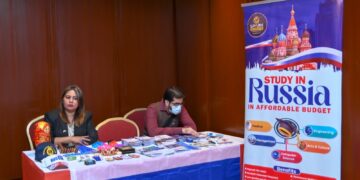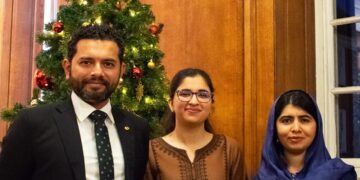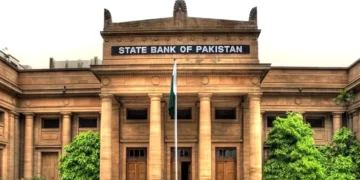Karachi, 21 Dec 2022: Integrated Tourism Zones in Khyber Pakhtunkhwa at Mankyal, Swat and Ganool, Manshera were held today in Karachi. The ITZs is a maiden concept in Pakistan which aims to open new destination in Khyber Pakhtunkhwa to promote responsible tourism by suggesting diversity and quality in the tourism offering of these destinations and provide guidance for tourist planning and destination management activities.
ITZ Feasibilties and Master Plans were prepared by the KP’s Department of Tourism (DoT) through Khyber Pakhtunkhwa Integrated Tourism Development (KITE) project with the support of international experts over a period of one year. The provincial authorities and other speakers shared the opportunities for private sector investments with the participants. As part of this exercise, customized plans for each destination have been prepared and will be used to invite the investments from private sector. It is expected that this approach of destination management will lead to improved visitor experience, better regulation of sites and mobilization of resources from the private sector for the identified investments.
“Khyber Pakhtunkhwa is well positioned as a preferred tourism destination in Pakistan – it has a considerable competitive advantage due to the natural endowments and a culture of hospitality. The Khyber Pakhtunkhwa government is not only focusing on creating employment opportunities by promoting tourism activities but also making efforts to conserve the natural and cultural assets by promoting responsible tourism in the province” said Chief Minster KP Mr. Mahmood Khan in his special message for the event.
Director General KP Culture and Tourism Authority (KP CTA) Muhammad Bakhtiar Khan in his key-note address stated “Khyber Pakhtunkhwa Tourism Department is committed to its objective of making the province a preferred tourist destination. Efforts are being made to not only develop new tourist sites but also better manage the existing tourist areas. It is important for us to prepare the sites for handling the tourist influx during peak season and to harness this opportunity to create economic opportunities for the communities.
Mr. Touseef Khalid Project Director KITE in his welcome address gave briefing on sustainable tourism initiatives undertaken by KITE “The use of innovative approaches including, development planning for new and existing destinations, public-private partnerships, reduced carbon footprint and heritage preservation are at the center of project implementation. KITE is contributing extensively towards tourist facilitation, building sector’s resilience against climate change and geophysical hazards and local economic development,”.
Ms. Kiran Afzal, (Senior Private Sector Specialist, World Bank) in her remarks congratulated the Department of Tourism on achieving this milestone and mentioned that ITZs can especially help the tourism sector of KP in attracting investments which will lead to economic and social uplift of local communities.


Mr. Zubair Motiwala, CEO TDAP in his closing remarks appriacited the Govt. of KP efforts in prmoting sustainable tourism and urge the local investors to make investments in tourism sector. He also explained step taken by TDAP and govt. in facilitating investments in this sector.
It is important to note that Upper Swat, and Manshera were impacted by the recent floods and there is thus a compelling case for disaster mitigation in order to conserve the nature, and protect tourism assets and livelihoods of communities that rely on tourism receipts.
An exclusive discussion on the title ‘Sustainable Tourism – The Way Forward’ was part of the workshop. The panelist shed light on various aspects of sustainable tourism and opportunities for the local economy. The panelists appreciated the efforts of DoT and KITE project and recommended practical ways for the immediate implementation of these plans.
KITE is a World Bank funded project that aims to promote responsible tourism in Khyber Pakhtunkhwa through better management and planning of tourist destinations, solid waste management, tourist awareness and conservation of heritage sites of religious significance in close collaboration with the private sector stakeholders.

















